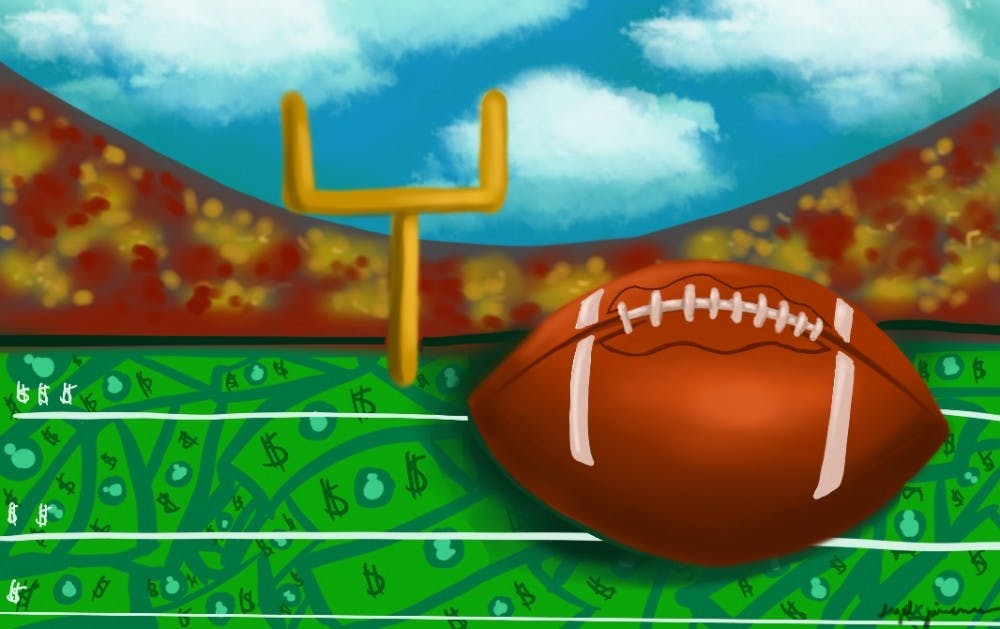In the entirety of college football’s 150-year history, college athletes have not been paid, and it needs to stay that way.
Earlier this month, California lawmakers approved a bill, that the governor has not yet signed, that would allow college athletes to profit off their name and likeness.
Tim Tebow, a former college quarterback who won the Heisman, went on ESPN’s First Take to share his belief that paying student athletes is the wrong approach.
Tebow is exactly right.
The phenomenon around paying college athletes and those driving the movement forward are forgetting the reason one goes to college: to get an education.
In an era striving for competitive balance, how would the NCAA keep from giving schools like Kentucky and Alabama even more of a competitive advantage than schools like Valparaiso and Florida Gulf Coast?
The issue gets complicated when taking into consideration how the salary difference between the quarterback on the football team and the third-string goalie on the lacrosse team gets decided.
Even worse, imagine athletes just coming to college for the money.
“You’re going to see bigger schools use (paying athletes) as a recruiting advantage,” said Marco Salas a redshirt freshman offensive lineman on the football team. “I think some people are going to come just to make money.”
We call college athletes amateurs. Oxford's definition of amateur is "a person who engages in a pursuit, especially a sport, on an unpaid basis." The keyword there is unpaid.
The history of the word amateur dates back to the French, from the Latin, word "amator", which means lover, and also from "amare" which means to love.
Essentially, the word amateur is based on the word love. College athletes should be playing their sport for the love of the game, not the money that would be given to them if we decide to give them a salary.
Rules should not be made for the fractional minority, and in this instance only two percent of athletes play professional sports. The expected career span of that two percent is 10 years, three and a half years in the NFL.
An appalling 80 percent of retired NFL players go broke within three years of retirement, 60 percent in the NBA within five years.
This is why the NCAA and its member institutions should implement a “stay and learn” rule.
This rule should state that if athletes choose to come to college, they will get paid in scholarships that last the entirety of the educational process and the athlete must stay in school until they earn a degree, associates at minimum, in the area of study they choose. If they choose not to go to college and play professionally, that is the risk they take.
By not forcing athletes to play in college, the argument for paying them goes away.
“I’d value the education,” Salas said. “That money (from going pro) is going to run out sometime, but the degree will always be there for you. You can use that in the long term.”
We need to protect the future of these athletes by arming them with the free education they choose to pursue. These athletes need a backup plan in case of a career-ending injury or a more common issue, the lack of talent to play professionally.
Look at college athletics for what it is and should always be, a high-pressure learning environment and an avenue to earn an education. A much more fun extension of the classroom if you will. After all, they are called student-athletes.
Reach the columnist at ancoil@asu.edu or follow @anc2018 on Twitter.
Editor’s note: The opinions presented in this column are the author’s and do not imply any endorsement from The State Press or its editors.
Want to join the conversation? Send an email to opiniondesk.statepress@gmail.com. Keep letters under 500 words and be sure to include your university affiliation. Anonymity will not be granted.
Like The State Press on Facebook and follow @statepress on Twitter.




